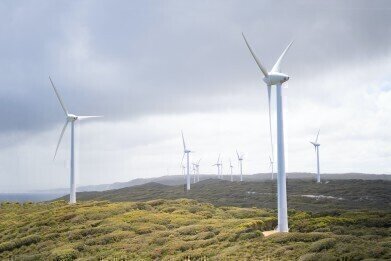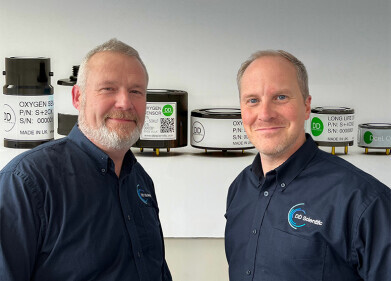Business News
Cornwall Hoping to Build First Onshore Windfarm in the UK without Subsidy
Mar 22 2016
Green energy company Good Energy have announced plans to construct the first British onshore wind farm not to receive financial support from the government. The project, named Big Field, will be based in Bude, Cornwall, and if successful could be in operation by 2018.
Upon its completion, the farm will consist of 11 turbines, each with a maximum wingspan of 125m of all blades. It is being funded partly through contributions from the local community and is expected to deliver electricity for as many as 22,000 local homes.
The Local Community Comes Together
Good Energy initially filed for planning permission to build Big Field whilst the subsidies offered by the previous coalition government were still on offer. However, the application was rejected and with the subsequent cuts in subsidies in the green energy sector, it looked like the £30m project might be dead in the water.
But rather than sink to the bottom, Good Energy are attempting to swim to shore by resurrecting the project with the incorporation of new, more sophisticated technology. This technology will allow the same number of turbines, each of equal size to the original plans, to produce double the amount of energy they had originally predicted.
This boost in efficiency, coupled with widespread support from the local community, has prompted optimism from the company that this time their petition for planning permission will not fall on deaf ears. It’s not yet clear how much investment will be required from citizens in and around Bude, but if successful, the economic returns those investors will receive will only complement the cleaner environment that the scheme engenders, thus giving a further boost to the local economy.
“This is a very welcome development,” the Guardian heard from Bill Andrews, a Bude resident who lives close to the projected site. “A lot of my neighbours already support this wind farm, and giving local people the chance to invest in the project would mean the community will see even more of the benefit.”
Setting an Example for Small Onshore Wind Farms
Though some quarters have suggested that the cutting of subsidies is not necessarily a bad thing for the renewable industry, the stark reality indicates otherwise. Since the government has withdrawn support for solar and wind industries, thousands of workers have been made redundant, numerous companies have been forced into bankruptcy and many projects simply abandoned.
Though the outcome of the latest application for planning permission will not be known for several weeks more, if the project is given the go-ahead, there is real enthusiasm that it could provide an admirable example for other small, independent wind farms to sprout up around the UK. It could also prove that just because the government has withdrawn its support, the wind power sector is not doomed.
Digital Edition
IET 34.2 March 2024
April 2024
Gas Detection - Biogas batch fermentation system for laboratory use with automatic gas analysis in real time Water/Wastewater - Upcycling sensors for sustainable nature management - Prist...
View all digital editions
Events
Apr 22 2024 Hannover, Germany
Apr 22 2024 Marrakech, Morroco
Apr 23 2024 Kuala Lumpur, Malaysia
Apr 23 2024 Kintex, South Korea
Apr 23 2024 Edmonton, AB, Canada



















